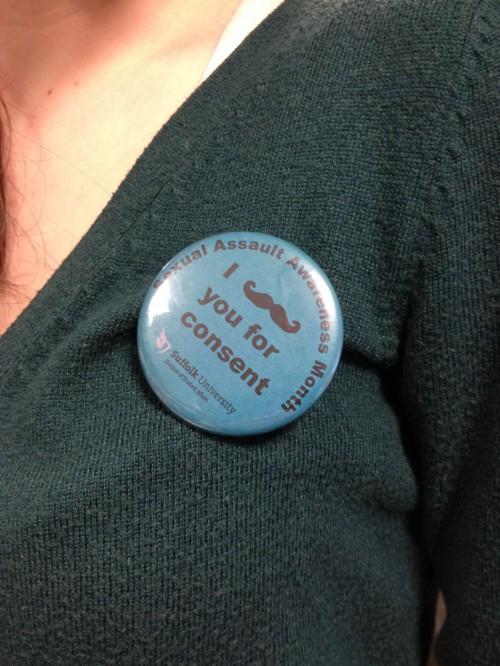I have been actively trying to fight, educate and speak out about sexual assault for a while now. It is a difficult subject to read about, listen to or talk about, but it is a prevalent one. It is a cause that is massively disheartening and due to its persistent survival, it seems nearly endless. However, the victims — the survivors — who have already braved a form of invasive humiliation that those who are lucky enough to have not experienced it will never understand, the ones who are braver than most, sturdier than most — they need the extra help because as it would so tirelessly seem, they are often told to keep their shouts to a whisper.
As members of a collegiate community, this is an epidemic that deserves more focus. According to OneInFourUsa.org, one in four college women report surviving rape or attempted rape since their 14th birthday. Those are terrifying numbers — they make the cause hit close to home.
Did you know that it is sexual assault awareness month? Have you seen information about it on your news channels or websites?

(Photo by Sam Humphrey)
It may be more common knowledge that it is national poetry month.
It is apparent that still, despite “rape culture” and despite disparaging acts of sexual violence we hear about (Emerson, Steubenville), people are still either too ignorant or too apathetic to bring notice to a wider playing field.
Sexual Assault Awareness Month (or SAAM) takes place in April and has a few, straight to the point agendas. The organization behind it wants to raise awareness about sexual violence and to educate communities and individuals on how to prevent sexual assault. The hope is that people and outlets will communicate and combine their collective resources during the month and with that intake of knowledge can highlight sexual violence as a major public health, human rights and social justice issue and reinforce the need for enlightenment.
It is a by-the-books idea: start a conversation (or two) to spread the word, improve public aid tools and keep people safe.
The 2014 campaign in particular focuses on healthy sexuality and young people to provide tools on healthy sexuality and to engage youths.
It always astounded me that in my high school health classes, sexual assault was hardly mentioned. Discussions need to be had. Young men and women should be educated on the social climate when it comes to such matters, especially when they are about to entering a larger world.
There should, at the very least, be one class purely dedicated to talking about the month’s cause.
All over the Internet you can find activists speaking about the month and its message. One video in particular called “Project Unbreakable” leaves an impact. The video shows women holding up signs where they have written their stories of abuse to share with the world, to reach a higher level of understanding. It allows people to see that no race, gender, sexual orientation or age is safe from assault — it affects everyone.
In New York people are waging protests against street harassment. According to ThinkProgress.org, an estimated 500 people showed up to mark the end of international anti-street harassment week.
“Red My Lips” is another program combatting the pre-conceived notions of what sexual assault is and those who shame, blame or victimize the survivors. By wearing red lipstick during the month of April you are adding to the sign of solidarity. The campaign wages war against the hurtful notions that women who wearing tight clothing, drink or put on makeup are asking for it or are any less worthy of compassion.
Victims’ voices are often silenced, either because by listening we are admitting to a larger, societal failure or because of how our culture has been conditioned to doubt or shame those who speak out.
This is a topic that should always be spoken about — one month will not be sufficient. It should be given a persistent voice until there is nothing left to be said. April is giving us an excuse to speak out, to listen to others and to join the fight.
This is not something that has an easy solution, but as a collective unit change is always possible and this is a cause that needs as many people to join as possible. I do not do much — I retweet articles on Twitter that share my thoughts and ideals, I post articles on Facebook that I think are important, I paint red on my lips and I do not hold back and I do not forgive those who assume the worst of victims. It does not take much to lend a hand, a voice or a support system — you just have to do it.













